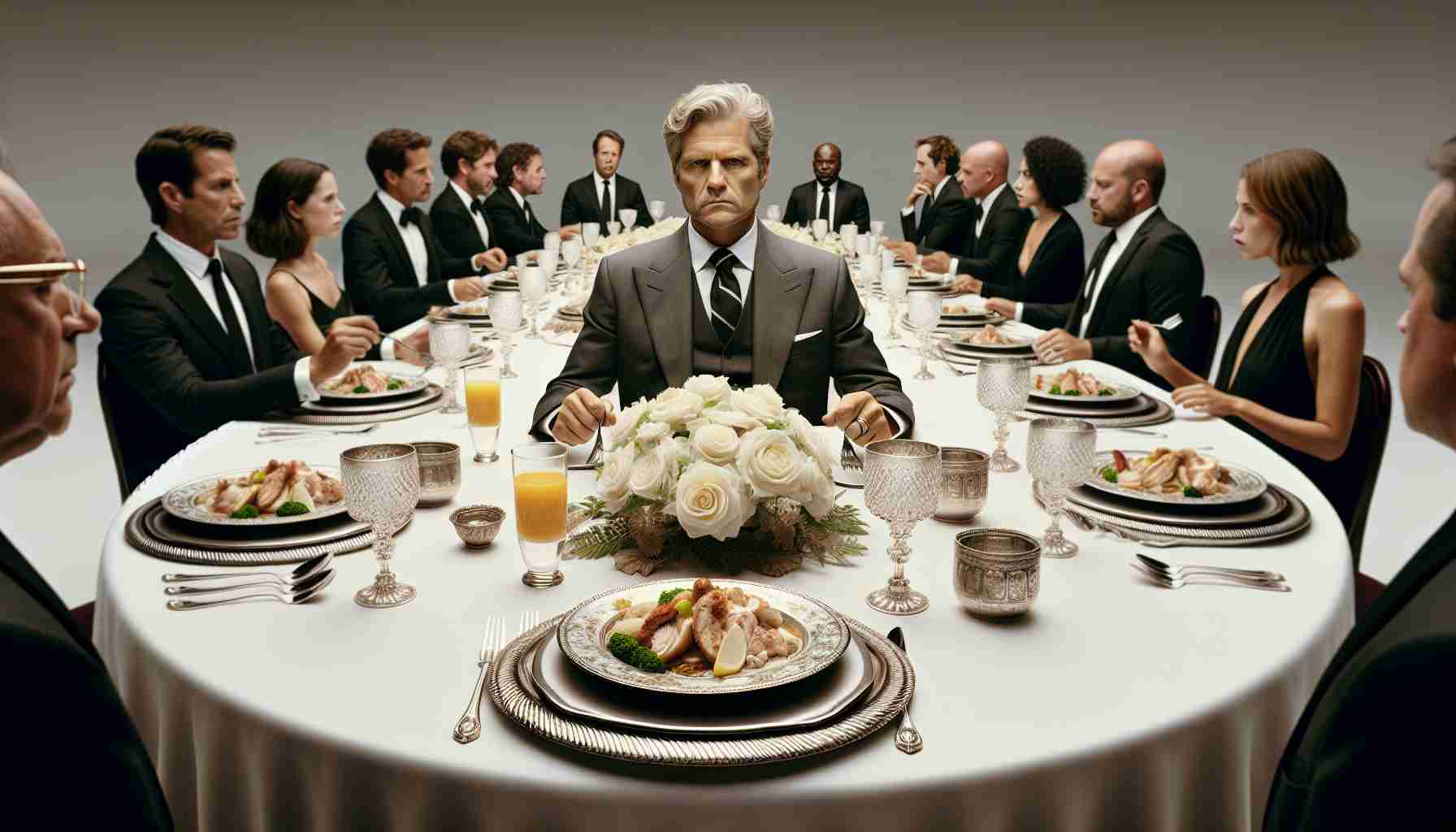- Bavaria’s Premier Markus Söder uses meal choices to engage followers on social media.
- His hashtag #söderisst highlights food experiences, both positive and negative.
- Söder faced backlash for criticizing a Lufthansa meal, labeled as “childish behavior” by critics.
- He later showcased a beloved Bavarian dish, reminding followers of the importance of comfort food.
- This incident illustrates how food can provoke public discourse, much like political topics.
In the world of political campaigning, every moment counts—even dinner. Bavaria’s Premier, Markus Söder, has elevated his meal choices to social media stardom, delighting and sparking debate among his nearly 700,000 followers with his hashtag #söderisst. But not all food is created equal in Söder’s eyes.
Recently, on a Lufthansa flight, Söder shared an image of an unappetizing dish featuring wild broccoli and purple potato salad, expressing his disdain by stating he simply wouldn’t eat it. Lufthansa, however, defended their culinary offering, insisting it had roots in Niedersachsen, and touted the dish’s blend of bergamot’s tartness with sweet grapes—a gourmet affair gone wrong, as far as Söder was concerned.
This meal generated a social media storm, with critics accusing Söder of “childish behavior” for dismissing the dish so publicly. In response, Söder pivoted back to Bavarian comfort food with a mouth-watering post featuring a breaded pork cutlet and potato salad, declaring he was back in Bavaria and enjoying a real meal. His culinary journey from disappointment to delight reminds us all that food matters—especially for a public figure.
The takeaway? Whether you’re in politics or just posting dinner pics on social media, the culinary choices you make can stir a conversation. Remember: what’s on your plate can sometimes be as controversial as what’s in the political arena!
What’s Cooking in Politics? The Unexpected Influence of Food on Social Media Fame
In today’s political landscape, the public’s perception of candidates can be swayed by their everyday choices, including their culinary preferences. Recent events surrounding Bavaria’s Premier, Markus Söder, highlight just how impactful these choices can be in garnering public attention and sparking debate.
The Rise of Social Media Food Posts in Politics
Markus Söder has effectively trained his followers on social media with his food critiques. Under the hashtag #söderisst, he shares not just his meals but also his opinions, which have become a staple of his online persona. His recent criticism of a meal served on a Lufthansa flight—specifics of wild broccoli and purple potato salad—shows how political figures can leverage everyday experiences to connect with their audience.
Political Moments in Culinary Choices
This incident serves as a reminder of how food can become a platform for political messaging and public engagement. The strong reactions Söder received after denouncing Lufthansa’s meal reflect how food can influence public perception. While Lufthansa defended its dishes by describing their heritage and gourmet intention, Söder’s pivot to Bavarian comfort food — specifically, a breaded pork cutlet paired with potato salad — underlines his strategic approach to public image; he leans into traditional Bavarian values that resonate with his constituents.
Key Aspects of Political Food Culture
1. Market Trends: The trend of sharing meals on social media by politicians is growing, with more leaders utilizing platforms to personalize their image and humanize their policies.
2. Public Perception: Food choices can influence public perception. For example, choosing comfort food over gourmet cuisine can reinforce a more relatable and down-to-earth image.
3. Viral Potential: Discontent with food choices can prompt viral backlash or support, illustrating how trivial matters can become significant distractions in political discourse.
Frequently Asked Questions
1. Why do politicians share food content on social media?
Politicians share food content to connect with constituents, showcase their personality, and leverage trending topics that resonate with public interests, ultimately aiming to build relatable brand images.
2. How do public reactions to food posts impact politicians?
Public reactions can significantly amplify or diminish a politician’s image. Positive engagement can enhance public favor, while negative backlash—like Söder’s experience—may lead to criticism but can also be turned into an opportunity to show relatability by making humorous or insightful responses.
3. What role does culinary heritage play in politics?
Culinary heritage is vital in politics as it ties lawmakers to their roots, making them more relatable to their base. Local dishes can evoke regional pride and create a connection with voters who value authenticity and cultural representation.
For further reading on how food impacts public opinion and political strategies, visit Politico.


















